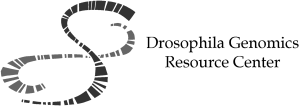Clone Policies
Refund Policy
Failed transformations. Notify the DGRC at dgrc@iu.edu if your transformation has failed - include the results of your test disc. The DGRC will test the clone - if our transformation fails, we will repick the clone from the master plate and reship at no additional cost to you.
Incorrect clones. If you believe that the clone you received is incorrectly identified notify the DGRC at dgrc@iu.edu and provide sequence information. The DGRC will repick the clone from the master plate and reship it at no cost. If you find that the clone is still incorrect, the DGRC will sequence it. If our results confirm that the clone is incorrect, a refund will be issued and the clone will be removed from circulation.
Dead clones. If the DGRC finds a clone to be dead before the order is shipped, the clone will be removed from the order and a refund issued.
Customs problems with frozen or live bacterial slants: The recipient is responsible for notifying the DGRC at dgrc@iu.edu at the time an order is placed of any documents that are required for clearing customs. The DGRC is not responsible for clones held in customs.
Intellectual property issues
None of our current lcones require a material transfer agreement (MTA).
Quality control
Large collections donated to the DGRC, have been accepted "as is". Clones in these collections have not been diagnostically verified by the DGRC. Please notify the DGRC if you experience problems with a particular clone so that we may document it for other users.
We will run quality control tests on random DNA stock cards. However, we do not have the resources to check every card. If DNA cannot be recovered from a FTA disc or if you have received the wrong clone, contact us at dgrc@iu.edu.
Pricing Schedule
DGRC operations are subsidized by the NIH, but a large part of our costs must be met by income from distribution of our resources. The major features of our pricing policy are as follows:
- Unless otherwise noted, you will be charged a $60.00 handling fee for each clone.
- You will pay for FedEx delivery, where applicable.
Fees and Shipping
Our fees will be reviewed periodically, and will be revised as necessary to reflect our actual costs. We charge a $60.00 handling fee for each clone, unless otherwise noted. When shipments require dry ice, you will be charged for FedEx delivery charges, or asked to provide a FedEx number.
Unless otherwise noted, DNA is shipped on a 2mm Whatman FTA card disc in microcentrifuge tubes at room temperature by regular mail. A protocol for recovery of the DNA will be provided with each shipment and is available for download. Some clones require unusual E. coli strains. Those clones will be provided as a frozen bacterial stock and shipped on dry ice.
A number of countries do not permit dry ice shipments; in these cases, we will ship the clones as live bacterial cultures. As a courtesy, we will alert you when we think that shipping problems may arise. It is your responsibility to inform us of any unusual shipping requirements.
Some countries require permits to import DNA, yeast or bacteria. It is your responsibility to be aware of the relevant laws and to provide any necessary permits.
Those requesting cDNAs to be reshipped, please contact us through our help line and list your lab account name, order number, the clone ID(s) requested for reshipment, and the reason for reshipment. If your transformation failed, we will test the FTA card before reshipping. If we find that a disc from the master card works in our hands, we will assess a reshipping fee (50% of the original cost) in order to cover our labor. If the error is found to be on our end, we will reship at no cost.
Payment
We encourage you to pay for all orders from the DGRC by credit card online. We also accept purchase orders.
Archival Collections
From time to time we are asked to provide long-term storage for collections (e.g. clones used in sequencing projects) that are unlikely to be requested often. The DGRC is prepared to try to provide such archival storage when it seems important to the community. However we can make no blanket offer: each case will be reviewed by the DGRC Advisory Board. Those that the Board recommends will be considered in view of our space limitations and finances. It is essential that the request to archive materials be made at least three months before your materials would otherwise be destroyed. For those materials that we do accept, we will be guided by the Advisory Board's advice on how long they should be retained.

